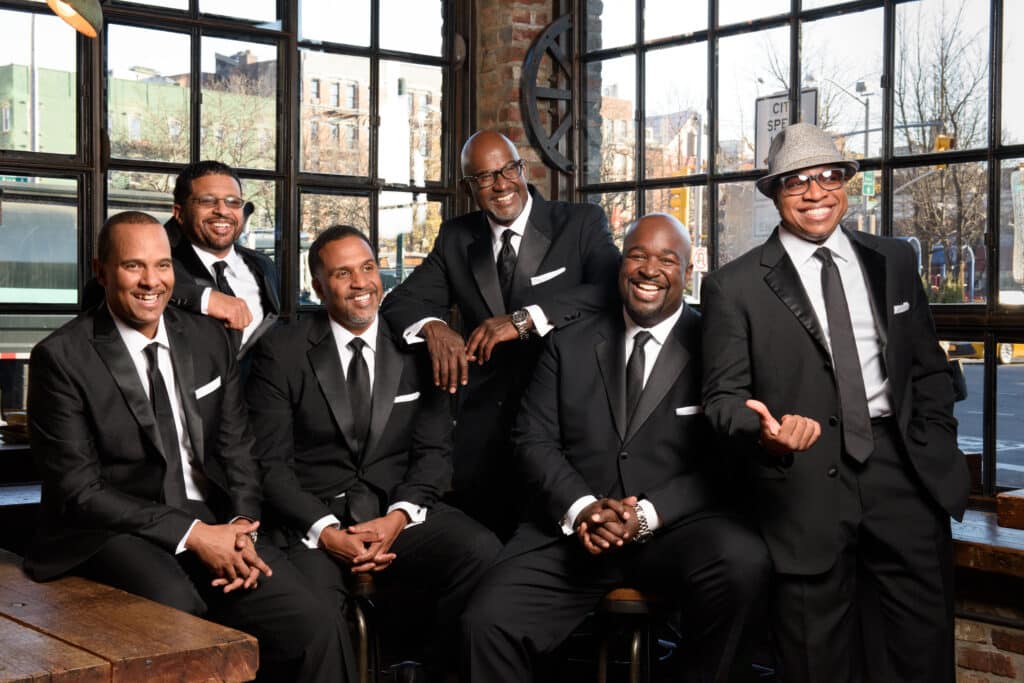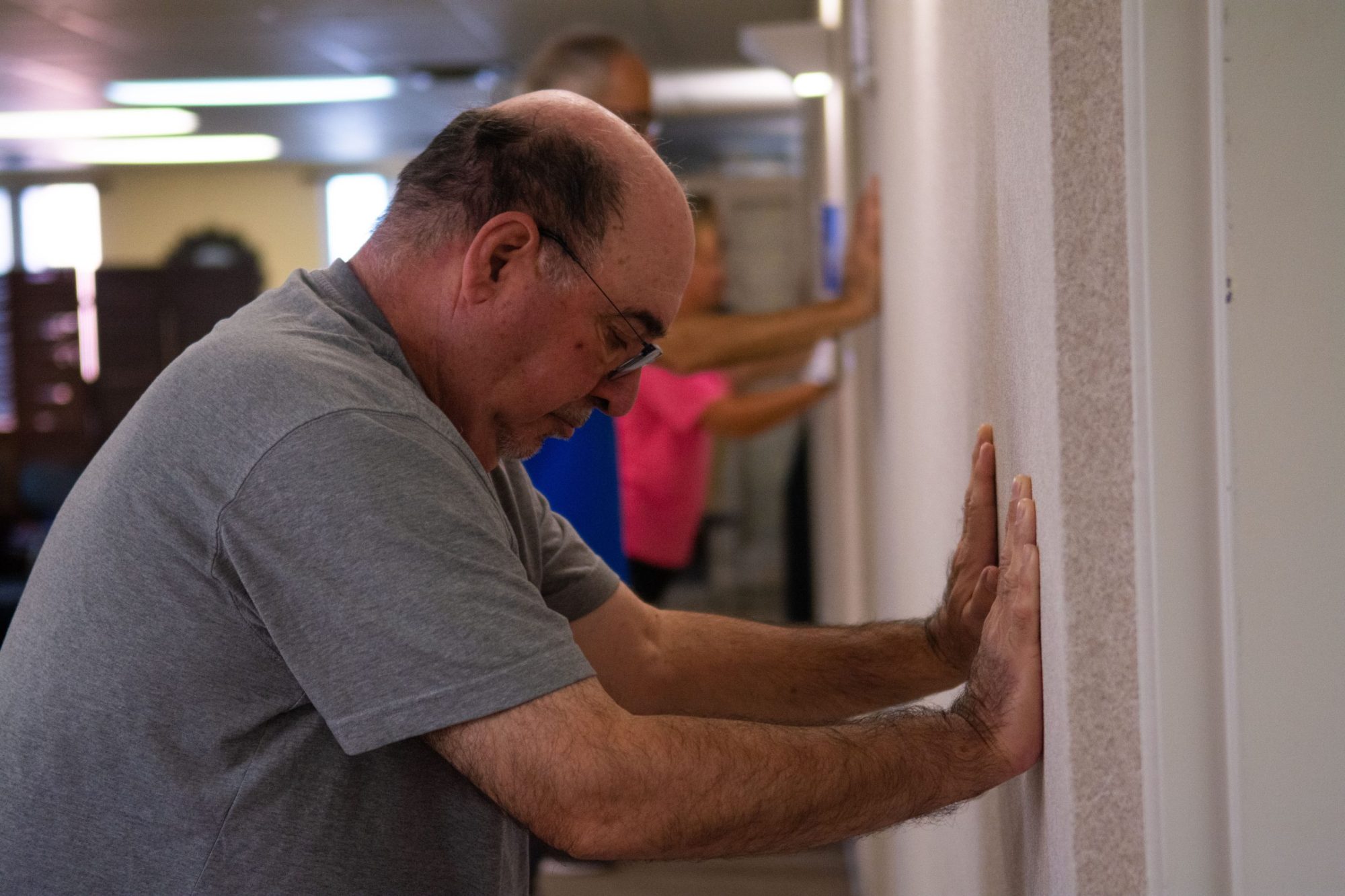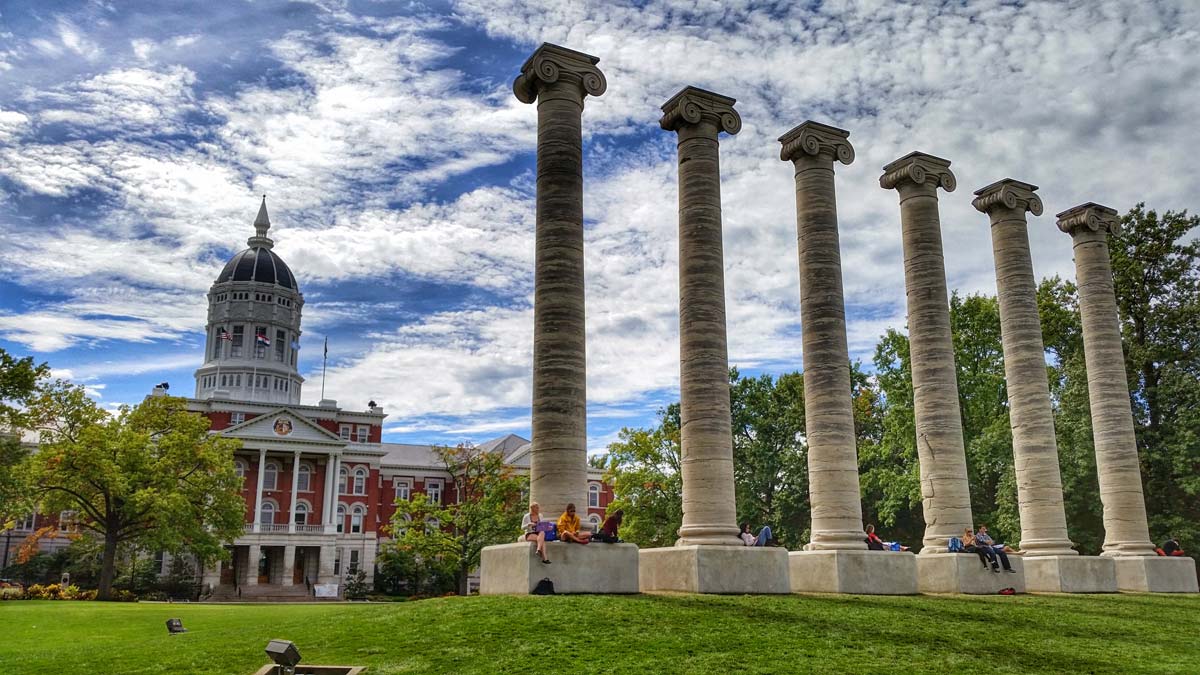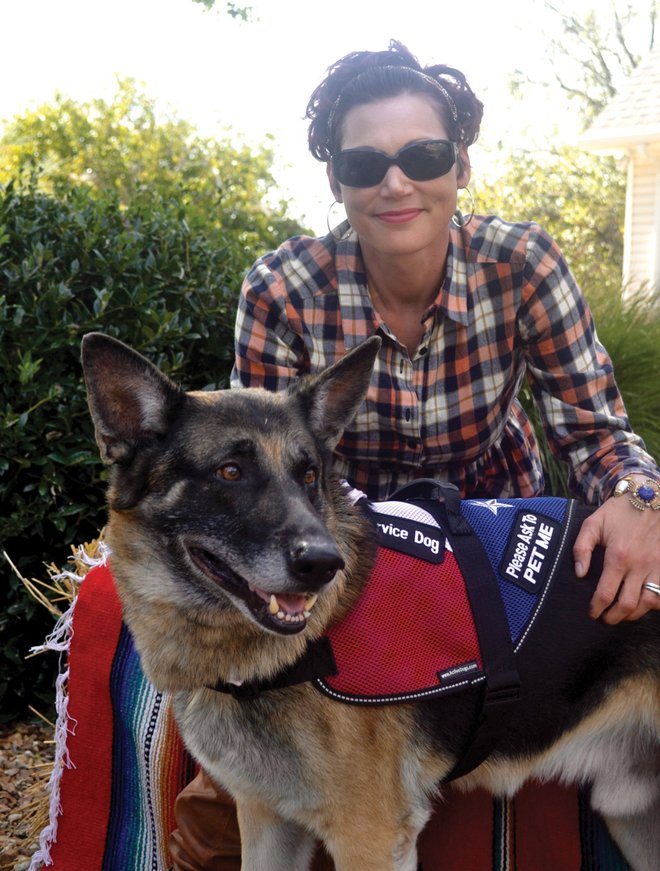The a cappella aces of Take 6 have earned 10 Grammy Awards, 10 Dove Awards, 2 NAACP Image Awards, a Soul Train Award, and more. The acclaimed music producer Quincy Jones calls the group, the “baddest vocal cats on the planet.” With a set list including selections from gospel, jazz, R&B, and pop, this multiplatinum selling sextet has toured the globe and is regarded as the preeminent a cappella group in the world today.

You can take in Take 6 on February 16, at 7 pm in a University Concert Series event at Jesse Auditorium on the University of Missouri campus in Columbia, Mo.
The 6 seasoned singers of Take 6 blend seamlessly in song. Composed of Claude McKnight, Mark Kibble, Joel Kibble, Dave Thomas, Alvin Chea, and Khristian Dentley, the group continues to bring amazing a cappella vocals to their worldwide audiences.
Sextet member Claude McKnight formed the group as The Gentleman’s Estates Quartet in 1980 while at Huntsville, Alabama’s. The group later took the name Alliance, only to find out after signing with Reprise Records/Warner Bros. in 1987 that there was another group with that name. That’s when they became Take 6. Explaining the name, founder McKnight says, “It pretty much was a play on the Take 5 jazz standard and the fact that there are 6 of us in the group, so it became Take 6.”
A cappella music originated as religious singing. “Alla cappella” means “in the style of the chapel” and it was typically sung in churches. At that time, it was accompanied by instruments such as the pipe organ.
Many religious communities then decided that hymns should be sung a cappella – the Amish, Mennonites, and others among them.
During the 15th century a cappella became popular in European churches. By the 16th century, it was slowly replaced by cantata, which had musical accompaniment. In the 19th century, choirboys became commonplace and would sing a cappella in the parish, supervised by the clergy.
A cappella then made the leap from religious to secular singing. Largely credited for this transition is Peter Christian Lutkin, the dean of the Conservatory of Music at Northwestern University, who founded the Northwestern A Cappella Choir in 1906. Similar groups began forming at many American universities. St. Olaf College has had an a cappella group since 1911, Concordia, Augustana, and Luther Colleges all have a history of a cappella groups.
In the 1930s, a cappella spawned Barbershop, which was inspired by how barbers in America’s southern states would sing to tempt clients into their shops. Most barbershop quartets feature a first tenor, second tenor, baritone, and bass.
After Barbershop, came Doo-wop, a type of a cappella created in the 1940s by young black Americans in large East Coast cities.
Today, many religious groups still sing a cappella, but it’s not a mandate. The singing style has become more familiar and popular with the general public thanks to radio and the Internet. A cappella covers of popular songs have also contributed, along with TV shows and films like “Glee” and “Pitch Perfect.”
For hundreds more events, visit Missouri Life’s Event Calendar.
Related Posts
Stay Strong, Stay Healthy Group Exercise Wins
We’re intrigued with Missouri research on how strength training in a group improved strength, balance, flexibility, social support, and even sleep for older adults. Get thee to a group!
Columbia Cherishes its Past
Columbia always has an eye on its future, but it cherishes the stories of its past. You can get an in-person glimpse of history at these Columbia locales.
This Joplin Group Gets Service Dogs For Veterans With PTSD
Sometimes the best medicine has four paws and a collar. Heartland Canines for Veterans is a Joplin-based not-for-profit organization that provides service dogs to veterans with post-traumatic stress disorder and other disabilities at no cost to the veteran.



